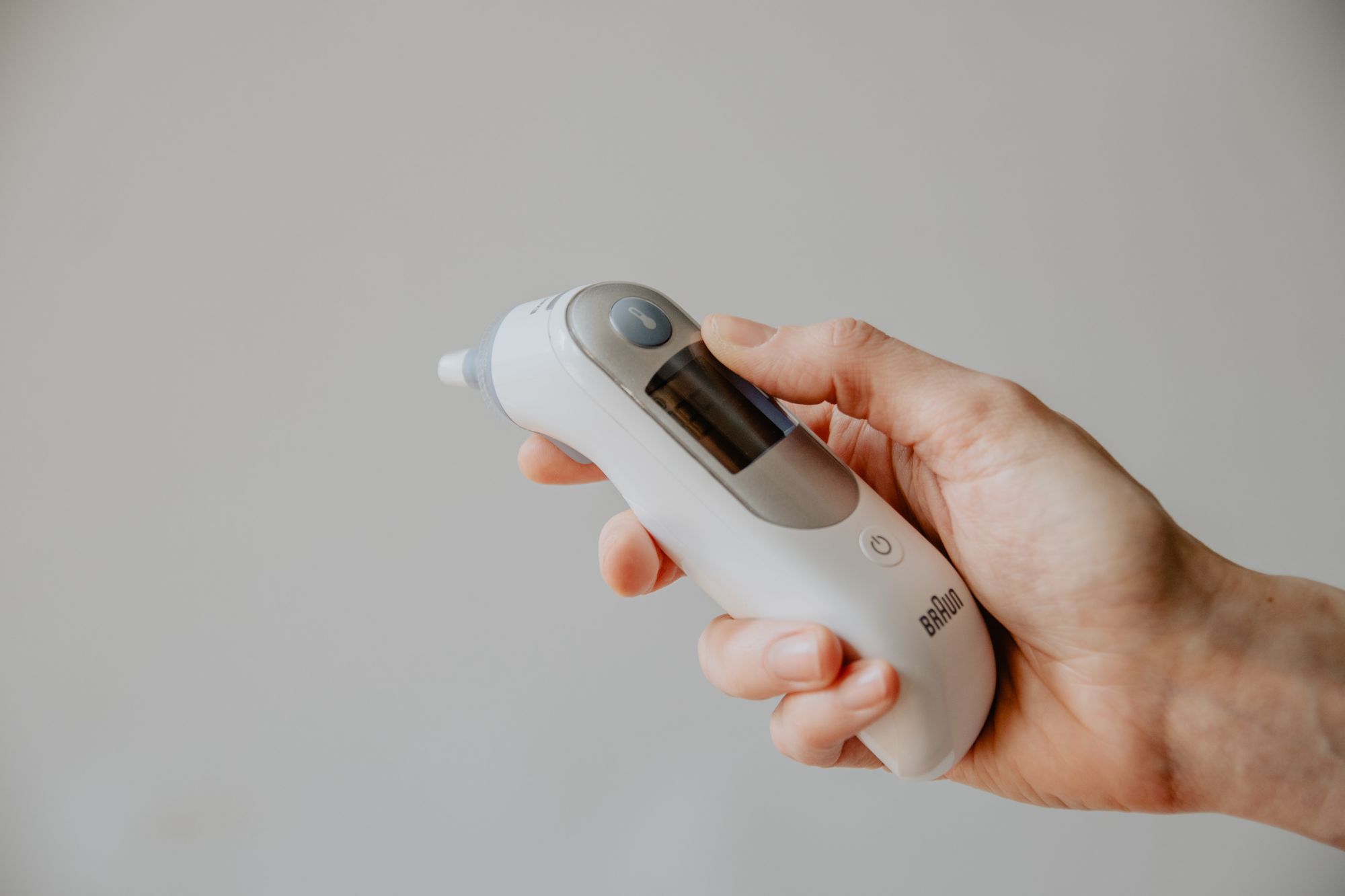Image by Kelly Sikkema from Pixabay
Hip and knee surgeries are extremely helpful in decreasing pain and improving function in your everyday life. However, every surgery does have the potential to cause complications as the surgeon makes cuts, repairs, and changes in your joint that hurt, but in the long-run can lead to improved function and reduced pain. In this blog post, I will be discussing some of the things you can watch out for to reduce the risk of complications and to give yourself the best recovery possible!
Pain & Stiffness in Your Hip or Knee:
The process of surgery and decreased mobility afterward can result in a lot of pain and stiffness as your body adjusts and heals. Pain after knee replacement in the days and weeks following surgery can be expected and doing your rehabilitation exercises will be painful; however, these exercises will help you to heal and regain your mobility! Exercises that have been prescribed to you by a physical therapist or other rehabilitation professional are extremely important and while it may hurt to do them, they will help to improve your movement, reduce your pain and ultimately allow you to return to the sports and activities you love! You may experience nerve pain after knee replacement; check out this blog to learn more about what helps nerve pain after knee replacement. Pain is different for everyone, so if you are concerned about the level of pain you are experiencing, contact your surgical team or physical therapist to gain a professional’s opinion about how to manage your pain. In the meantime, you can check out our blog on how to relieve knee replacement pain.
You can read more about pain during the recovery process by clicking here!
Reinjuring Your Joint:
After your hip or knee surgery, you will likely be told about some recommendations or precautions to take to avoid reinjuring your joint. For ACL reconstruction surgery, roughly 6% of patients may experience a rerupture of the same ligament.[7] In contrast, the main risk for reinjury after total hip or knee replacement involves the possibility of dislocating the new artificial joint (dislocation happens after about 2% of hip replacements and 0.15% to 0.5% of knee replacements).[1][3][8][9] Following surgical precautions to the best of your ability is the key to helping your body heal and to get back to living your best life! A surgical precaution is the specific instructions you have been given right after surgery. For example, “do not bend your knee past 90 degrees for the first 3 weeks after surgery.” The restrictions can be different for everyone so it is important that you follow your specific restrictions. This is another reason why it is crucial to have a friend or family member with you after surgery so they can either take the important information provided by your surgeon or write down your precautions and restrictions for you. Trust me you will not remember anything the day of your surgery!
To read a blog post about how to speed up your recovery, click here!
Infection at Your Incision Site:
Infection of your surgical incision is another somewhat common complication after surgery due to the risk of bacteria or other foreign agents entering your body through the incision. By the way, the incision is the cut that your surgeon had to make to perform the surgery. Common signs of infections include:
- Redness, swelling, and warmth around the incision - some redness and swelling is normal, but they should decrease over time after surgery, rather than getting worse! Streaks of red radiating from your incision, as well as worsening swelling and heat, are all signs of an infection.[2]
- Delayed healing - if you notice that your incision does not start healing in the weeks after surgery, this may be a sign of an infection.[2]
- Fever - temperatures greater than 100 degrees F or 37.8 degrees C.[2]
- Pain and tenderness - some pain is to be expected after surgery, but if you notice that after a few days the pain at the site of the incision is increasing, there may be an infection.[2]
If you think your incision might be infected, contact your surgeon for further information on how to proceed!
Pain Medication Allergy:
Another potential complication following your hip or knee surgery is an allergy to your pain medication. Symptoms of a drug or medication allergy may include:
- A raised itchy skin rash or hives[4]
- Fever - temperatures greater than 100 degrees F or 37.8 degrees C.[4]
- Swollen lips, eyes, mouth, or face.[4]
- Shortness of breath and wheezing.[4]
- Runny nose.[4]
- Itchy, watery eyes.[4]
While exceptionally rare, anaphylaxis is a medical emergency resulting in a life-threatening reaction to a medication, which leads to dysfunction of many of the body’s symptoms.[4] Some signs and symptoms of anaphylaxis include:
- Tightening of the airways or throat.[4]
- Trouble breathing.[4]
- Nausea, abdominal cramps, vomiting, or diarrhea.[4]
- Dizziness or lightheadedness.[4]
- Weak, rapid pulse.[4]
- Drop in blood pressure.[4]
- Seizure.[4]
- Loss of consciousness.[4]
This type of reaction is very serious and you need medical attention immediately! Call your local emergency medical services if you suspect an anaphylactic reaction. In Canada and the USA this means calling 911 for immediate medical attention. For milder reactions, you should contact your doctor as soon as possible to discuss how to proceed.
Blood Clots:
Blood clots are unfortunately somewhat common after knee or hip surgery due to the reduced levels of activity and increased time spent in bed or lying down while recovering.[3][5][7][9] There are two common types of blood clots that occur after hip or knee surgery - deep vein thromboses (DVT) or pulmonary emboli (PE) - which occur following 3% and 1.5% of bone and joint surgeries.[5] DVTs are blood clots that form in deep veins in your body, most commonly in your thigh or lower leg.[5] PEs are blood clots that may be formed somewhere else in the body but travel to the vessels of the lungs, causing a blockage. Both of these types of blood clots are quite dangerous and it is important that you know what to look for in case you do get one! Here are some of the common signs of a blood clot:
- Throbbing or cramping pain in your leg.[6]
- Swelling in your leg and pain when you squeeze your calf.[6]
- Red or bluish skin colour, not related to the site of your surgery.[5]
- Sudden breathlessness.[6]
- Chest pain, which may be worse when you breath in.[6]
- Rapid heart rate.[5]
- Unexplained cough that may include bloody mucus.[5]
A blood clot is a serious medical emergency; if you think you may have a blood clot, please contact your local emergency services.
If you need further customized assistance during your surgery or injury recovery check out our Virtual Physical Therapy page to book your 1-on-1 video session with a virtual physical therapist.
For more information on ACL, knee replacement, or hip replacement recovery, download the Curovate physical therapy mobile app for guided exercises, rehab reminders, progress tracking, and more, all from the convenience of your phone. Click on the links below!
 |
 |
|---|
Other Related Blogs
- What is a Total Knee Replacement?
- Should I put off my total knee replacement surgery? What are my other options?
- The Mental Side of Injury: Hot to Keep a Positive Attitude During Recovery
- Video: How Can I Relieve Pain After Total Knee Replacement
- Why does my knee feel weird after my total knee replacement? Why does my knee feel heavy after my total knee replacement?
References
2. Hopkins Medicine. Surgical Site Infections.
3. Hwang SK. Experience of Complications of Hip Arthroplasty. Hip Pelvis. 2014;26(4):207-213.
5. National Blood Clot Alliance. Blood Clots in Orthopedic Surgery Fact Sheet.







